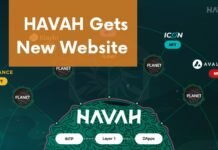Round 12 of the CPS approved and funded the Unity SDK for ICON project.
This initiative by ICON community member FOMOmental and sponsored by ICONDAO integrates one of the world’s most popular gaming engines into ICON, opening the way for game developers to more easily build on the blockchain network.
For FOMOmental, it was a natural choice to bring Unity to ICON.
“Though the crypto space is full of entrepreneurs, not all projects come with large teams steroid-injected with surplus amounts of money,” he says. “In many eyes, Unity is the favorite choice for indie developers, that is, games developed by very small, low-cost teams. Unity also seems to be adopted in the crypto space more, evidently, through the Chainsafe SDK (to be discussed later).”
The Chainsafe Gaming SDK Epiphany
FOMOmental felt the growth of gaming on ICON made the need for Unity even more apparent. When he was researching the dynamics of blockchain game development, he stumbled across the Chainsafe Gaming SDK, one of the most popular gaming SDKs in the blockchain space. The Chainsafe Gaming SDK bridges Unity with several blockchain networks, including Ethereum, Binance, Moonbeam, Polygon and Harmony.
Discovering the Chainsafe Gaming SDK proved an epiphany. “With the growth of games starting to be developed on ICON funded by the CPS, it was the only logical move for critical infrastructure to be built for ICON,” said FOMOmental. “It is also extremely difficult and delicate to build a Unity game and tie it to the blockchain without an SDK.”
Enter the Devera Blockathon. The grand winner of the Devera Blockathon — Expansion ICON 2.0 contest was Eclectica, a “cross-chain metaverse built on ICON for everyone.” Eclectica, too, was keen on bringing Unity to ICON. “I and the Eclectica team spoke a lot about the Unity SDK, and concluded that it is only appropriate for it to be built,” says FOMOmental. “Hopefully, the SDK will be, in the near future, used in Devera hackathons.”
Unity SDK? What means?
FOMOmental explains that the Unity SDK builds a light-wallet client in Unity — essentially, a “bridge” or a gateway portal so the Unity game engine can interact with the blockchain. He points to NFT gaming as a major potential use case.
“The reality is, NFT’s will ‘live’ on blockchains and not on the game, but how does the game know what the NFT means in the blockchain?” he asks. “This is what the SDK does. It enables communication.”
It took one one month and 23,000 bnUSD to build the SDK. FOMOmental liaised with a blockchain development team with Unity expertise to get it done, with the full CPS payment released only when the product was finished.
“This was because I sourced a team without any legal or formal agreements, with only the reputation of their github,” says FOMOmental. “I did not want to risk my reputation and take funding from the community treasury, for a SDK that I was not sure would be built – the characters of the individuals remained unknown. I wanted the community to only pay when given something complete.”
The Challenges of Niche Developments
The niche nature of the project proved a major challenge.
“The main problem with building such a tool is the niche of developers that can actually build one. It is very niche and rare to find developers who are specialized in both blockchain development and Unity gaming,” says FOMOmental. “Secondly, due to its rare nature, even if you’ve found the correct devs, it is not always possible to get them to build the tools you require because they are overly busy with their current jobs. Timing is everything.”
It’s also something of a seller’s market with niche developers.
FOMOmental explains, “Another key issue I found was that other ecosystems with deeper pockets had already offered these niche devs roles to build similar tools for them, so it is quite competitive to source such devs.”
Convincing developers from outside the ICON community to apply through the CPS has also proven difficult. It’s not the conventional way things are done in the crypto space, forcing FOMOmental to play the role of agent or contractor.
“For example, I had to pay a down payment on the SDK, before any money was given to me by CPS, and at the same time be liable for any bond losses,” he says. “I took a lot of responsibility on my shoulders financially and from a reputation standpoint to get this SDK done, by trusting ‘anon’ devs from online, but it was the only way, and now I can see it working out as the best and the only way to get things done, although it was risky.”
About FOMOmental
FOMO has been a community member in ICON since the ICO days. Since the launch of ICON 2.0 and the upcoming BTP/Bridge release, has has been more enthusiastic than ever to contribute to the community and play his part to grow ICON and the current ecosystem. He says, “My efforts do not stop at the SDK.”





